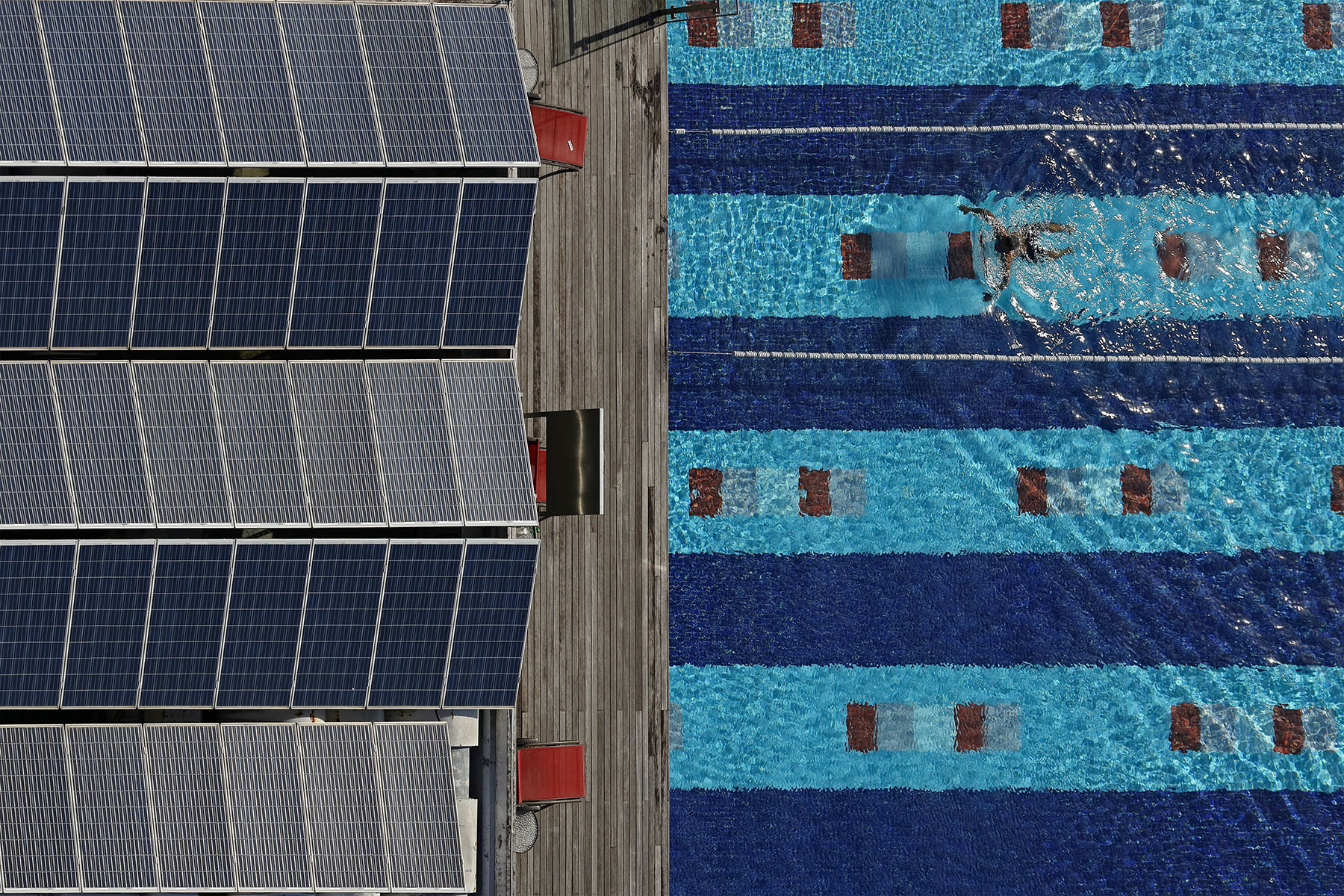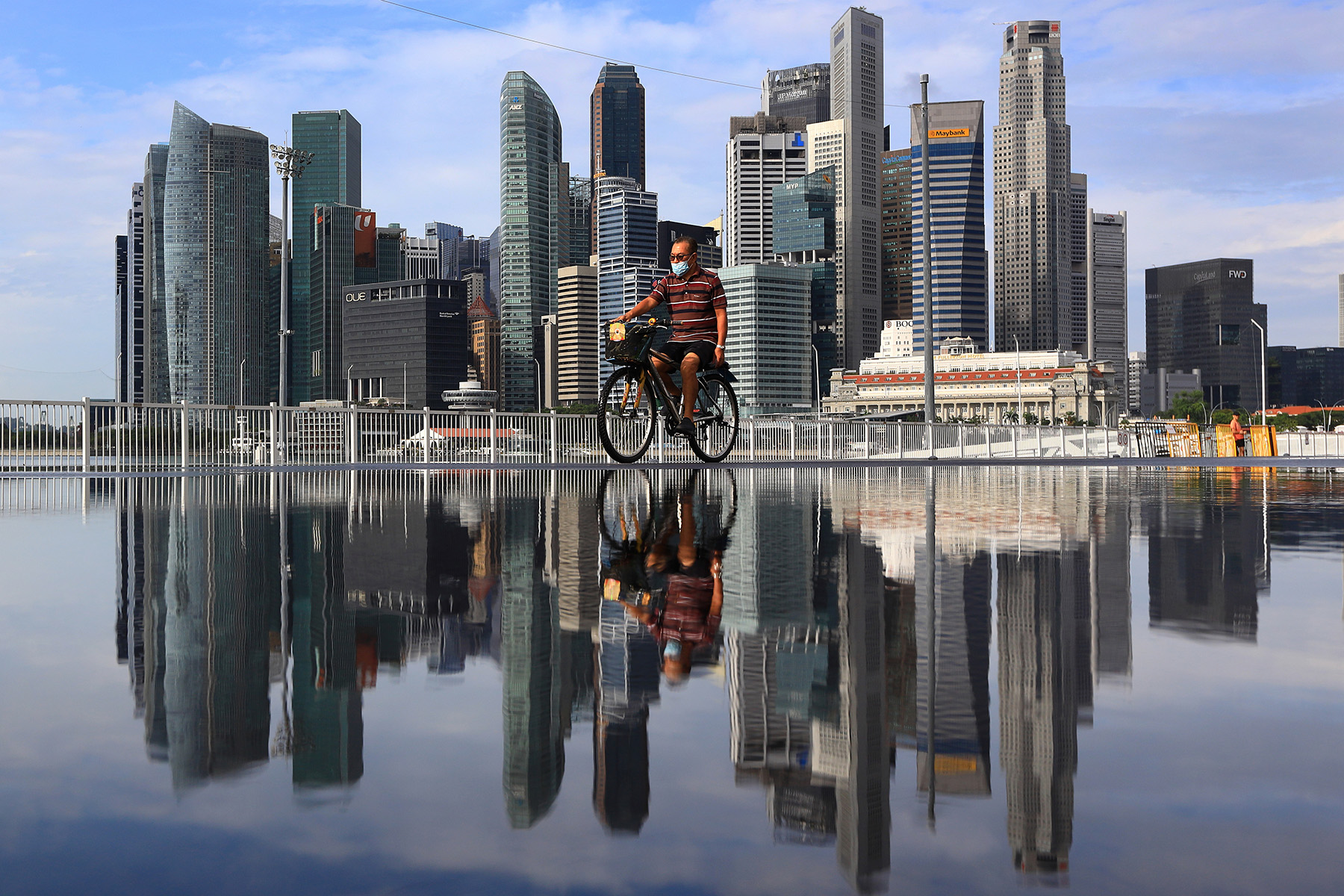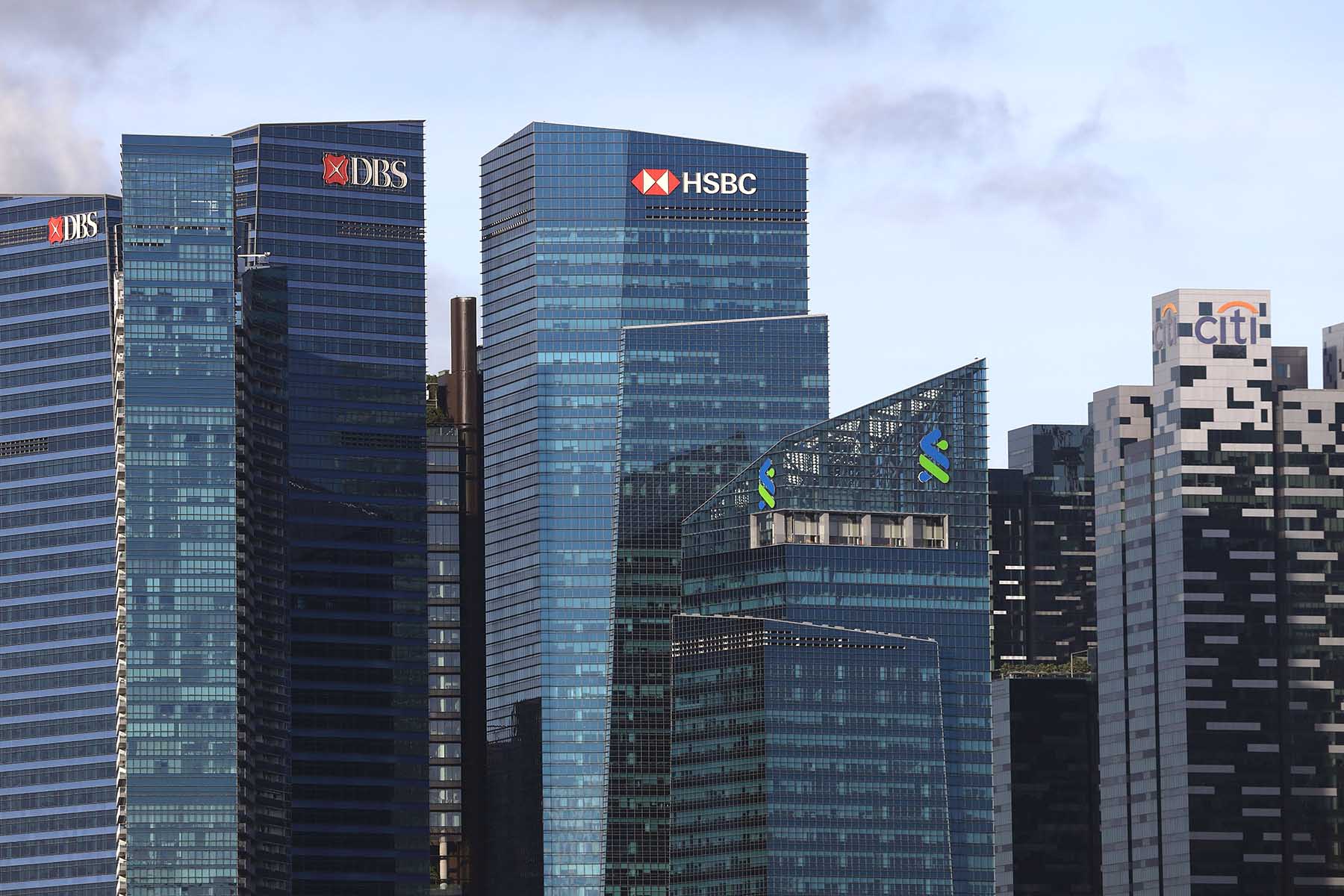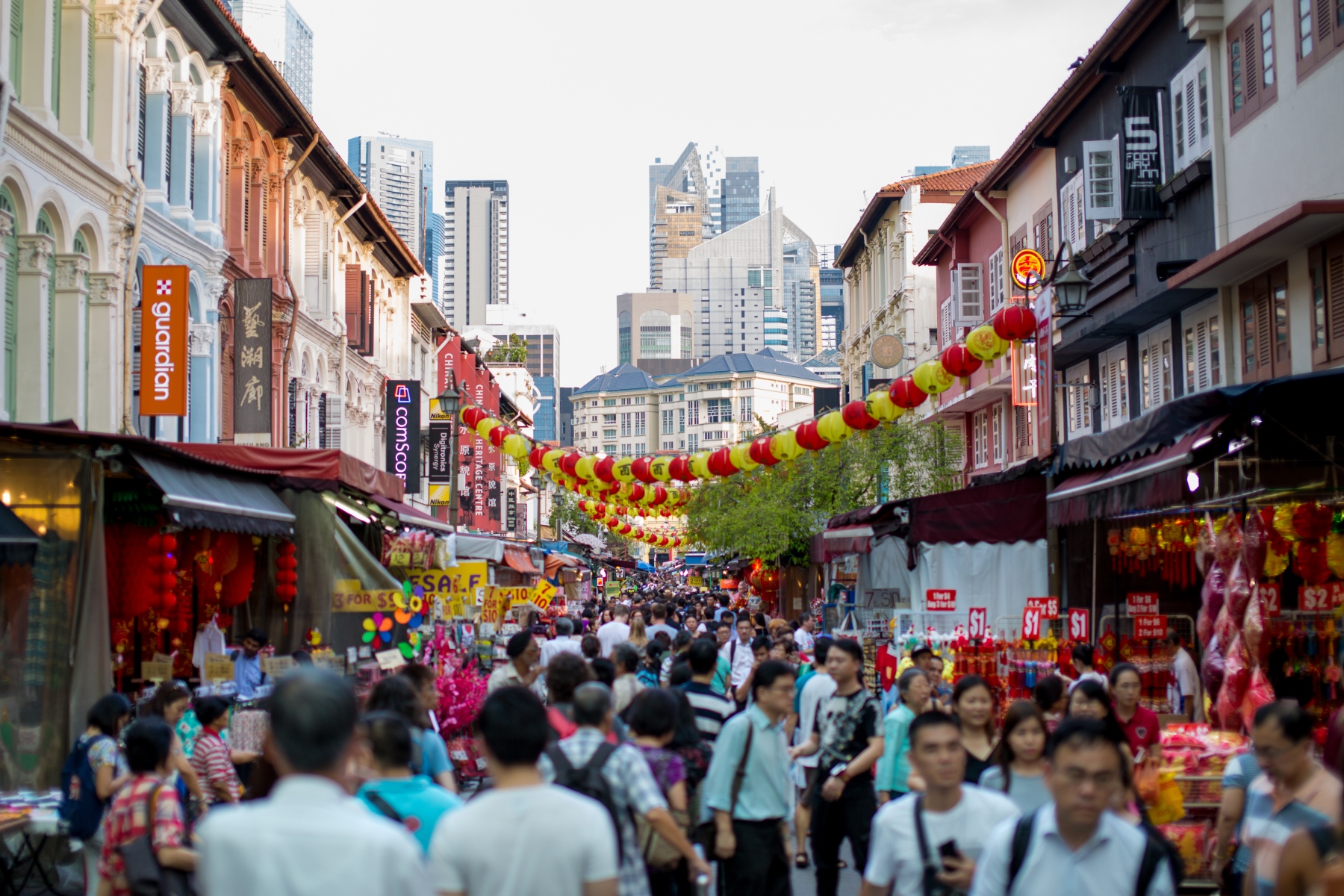When you move into a new home in Singapore, you’ll probably need to find utility providers. These supply electricity, gas, and water to your home. It makes sense to organize your utilities as early as possible to ensure you’ll receive power – during your first week in Singapore, or even sooner if you can.
Below, you’ll find all you need to know about setting up utilities in Singapore. Sections include:
An overview of utilities in Singapore
When you move to Singapore, you’ll need to sort out utility providers for your home. The only exception is when you rent accommodation, and your landlord includes utilities charges in your rental costs.
The main Singapore utilities are distributed via a public-private partnership, with state-owned organizations working with private retailers to supply homes. Singapore Power Ltd (also known as SP Group) is the government-owned electricity and gas distribution company. The Public Utilities Board (PUB) is the government agency responsible for national water distribution.
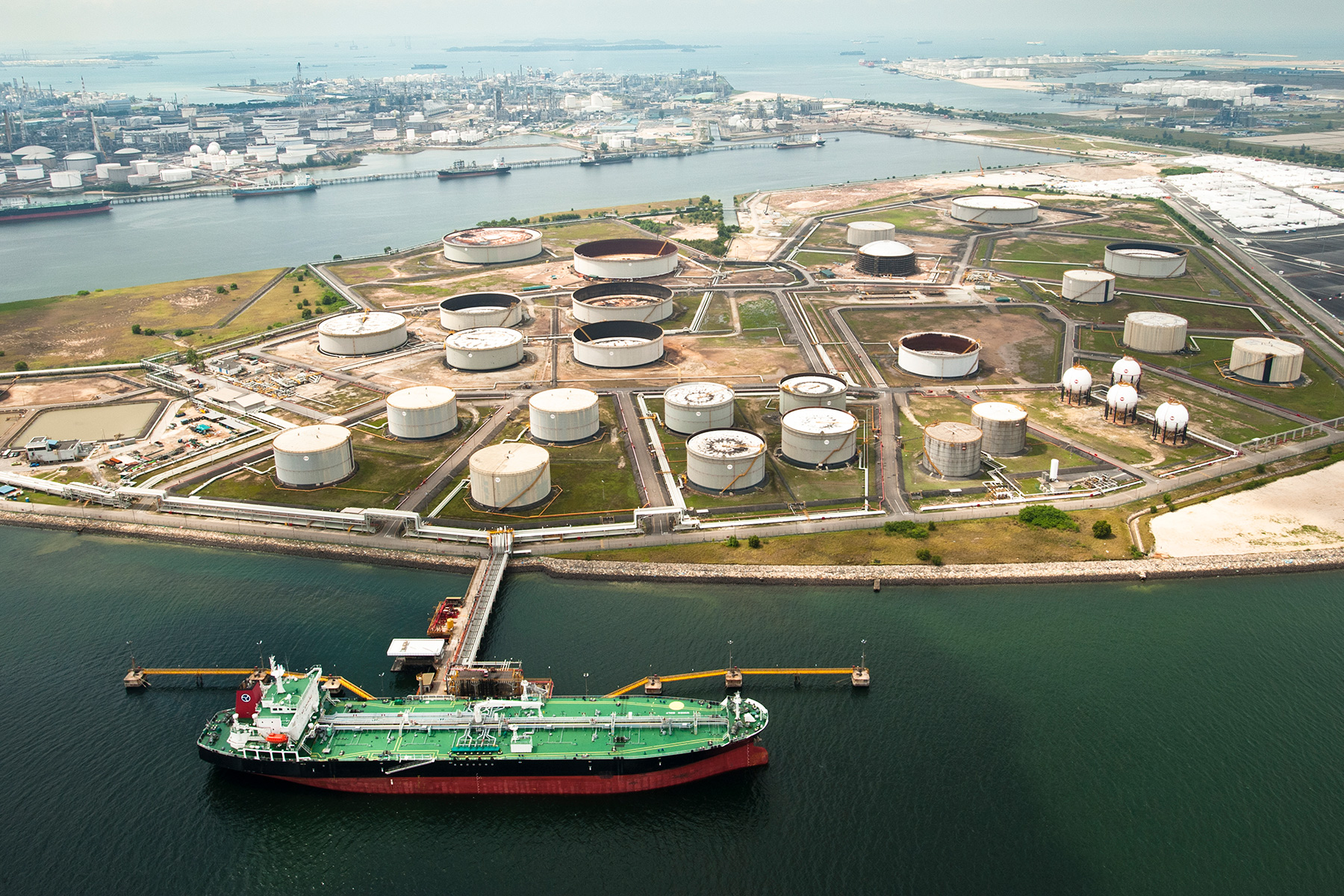
Singapore currently imports most of its energy. Crude oil comes from Gulf states, natural gas mainly from neighboring Malaysia and Indonesia, and liquified petroleum gas (LPG) largely from Australia and the US. Oil is still responsible for the majority of energy consumption at 68%. Natural gas has increased to 28%. Coal and biomass account for 2% each (2021). 95% of Singapore’s electricity now comes from imported natural gas.
The Singaporean government has committed to increasing solar energy across the country through the SolarNova program. It has also pledged to become net zero by 2050. Its sustainable energy strategy consists of four switches – natural gas, solar energy, regional power grids, and low-carbon alternatives. It recently opened the largest solar energy storage system in southeast Asia on Jurong Island. Singapore currently produces 58.18mt of CO2 per year (2021), which is 0.15% of the global total.
The Energy Market Authority (EMA) oversees electricity and gas in Singapore. Meanwhile, the Ministry of Sustainability and the Environment (MSE) regulates water through the PUB.
Singaporean electricity
The standard voltage for electricity in Singapore is 230V, and the frequency is 50 hertz (Hz). Singapore uses the type G plug, the three-pin plug found in countries such as the UK.
As of 1 July 2023, all homes in Singapore have a residual current circuit breaker (RCCB) installed to improve electrical safety. Currently, 33 categories of household goods need to have a consumer safety mark when sold. If you are installing electrical equipment in your home or business premises, make sure that you use a licensed engineer.
Who are the major electricity suppliers?
The state-owned SP Group is the main electricity supplier in Singapore. In addition, 19 private licensed electricity retailers in the country buy from the main supply and sell to customers on the Open Electricity Market (OEM). Some of the biggest companies are:
- Keppel Electric Pte Ltd
- Seraya Energy Pte Ltd
- Sembcorp Power Pte Ltd
- Senoko Energy Supply Pte Ltd
- Tuas Power Supply Pte Ltd
The Open Electricity Market has a comparison tool to compare price plans for Singapore utilities. You can also try websites such as MoneySmart.
How can you access green energy?
Singapore currently generates less than 1% of its energy through renewable green sources. However, it has put in place a Green Plan 2030 to shift towards greener production methods. At present, most government energy efficiency initiatives are aimed at businesses, for example, carbon taxes and encouraging changes in business practices.

From a consumer point of view, this involves moving towards solar energy and, further down the line, exploring a shift to low-carbon alternatives such as hydrogen and geothermal energy. When it comes to accessing green energy through Singapore utility companies as a resident, a few suppliers offer eco-plans. These are either solar energy (sourcing energy from solar plants) or carbon-neutral electricity plans, which offset emissions through other activities. According to MoneySmart, these companies are:
- Geneco Power – two Eco-add-on carbon-neutral plans
- Keppel Electric – two ecoGreen carbon-neutral plans
- Pacific Light – Sunny Side Up carbon-neutral plan
- Sembcorp – Sunshine plan using solar energy
- Senoko – two carbon-neutral offers
- Sunseap – two solar energy plans
The National Environment Agency is the government agency in Singapore responsible for promoting energy efficiency. It also manages the two main biomass energy facilities in Singapore.
Installing solar panels
According to the EMA, there were 1,891 solar panel installations in residential households in Singapore at the end of 2022. This equates to around 0.11% of the total households. However, the government aims to increase solar power as one of its four renewable energy switches in the coming years. This move is considered the most viable plan for energy sustainability.
You can switch to solar-powered energy regardless of who your electricity supplier is. However, you cannot install panels if you live in a shared building, such as a tenement block. Fortunately, the Housing Development Board (HDB), which operates most apartment buildings in Singapore, has a Green Towns Program that includes increased use of solar panels.
There are several providers of solar panels in Singapore. These include:
You can install your own panels, but it’s easier to let one of these companies handle it. Installation costs can vary between SG$15,000 and SG$36,000 depending on the property type. Maintenance is usually around SG$300–500 per visit. However, there is potential to make money back through free electricity supply and selling any surplus back to the grid.
The EMA has produced a handy guide for individuals or businesses investing in solar panels.
How do you connect and disconnect electricity in your home?
To connect electricity in your home, you must first set up a utilities account with SP Services, a division of SP Group. Regardless of your suppliers, you need this account to pay electricity, gas, water, and refuse collection bills.
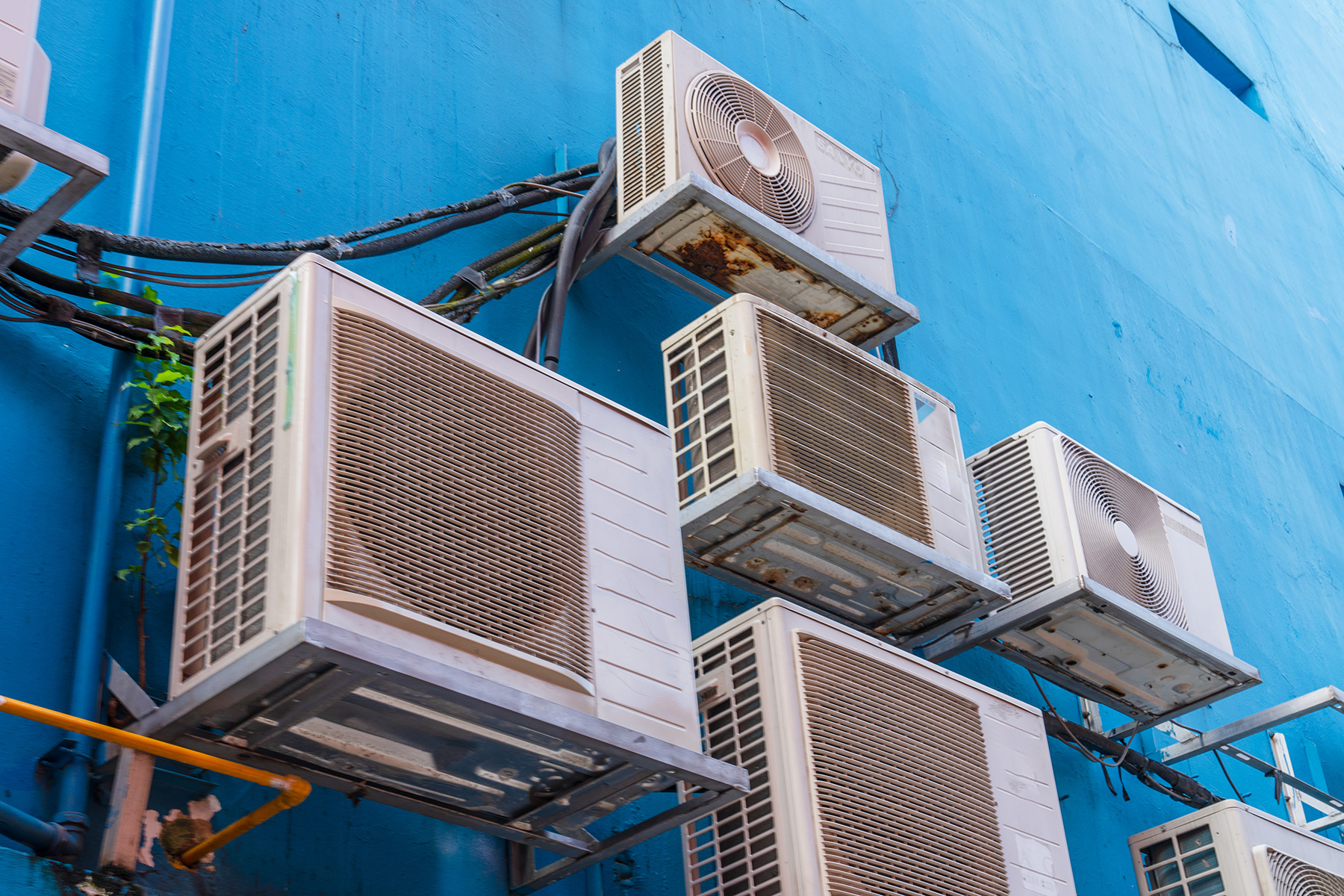
You can open an account via the SP utilities portal or by downloading the SP utilities app (which you can also use to pay utility bills). Alternatively, you can visit a customer services center. You must be aged 18 or over and will need to provide:
- ID number (either NRIC or FIN)
- Proof of address, for example, property deeds or tenancy agreement
SP Services will charge you a deposit, which could be anywhere between SG$40–800, depending on your property type. Once your account is open, you can schedule an appointment for an electrician to visit your home and connect the supply. It’s worth noting that it can take up to two weeks for utilities to be switched on, so do this as soon as possible.
You can close your account via the app, using an online form, or visiting a customer service center. SP Services will use your deposit to settle any outstanding bills and will return the difference. If you move to a new Singapore address, you’ll need to close your exisitng SP utilities account and open a new one.
Can you change electricity suppliers?
You can change electricity suppliers in Singapore at any time. However, you need to keep your SP utilities account open to pay bills.
When you first open your account, SP Group is your default supplier, but you can choose a different electricity retailer on the OEM. If your supplier ceases to trade at any point, your account will revert to SP Group.
To switch suppliers, you will need to provide your SP utilities account number, name, and address details.
How much does electricity cost?
Like many countries, Singapore has been hit with rising energy and living costs over the past few years. According to the global price index, Singapore has the 33rd most expensive electricity supply in the world, at $0.238 per kWh.
SG Group supplies electricity at a regulated tariff rate which it reviews quarterly. The current tariff from 1 April 2023 is SG$0.2996 per kWh. Suppliers on the OEM offer different fixed and variable price plans, which might include a set rate for 12 or 24 months. Most have details of these tariff structures on their website.
Average electricity bills in Singapore vary depending on property and household size. In May 2023, monthly bills ranged from SG$69.62 for a one-bed apartment to SG$596.94 for a detached bungalow. The Singapore government is providing support packages to help offset costs during the current cost-of-living crisis, including vouchers and credit top-ups.
Reporting electrical faults and requesting repairs
In case of a serious fault, you can call the electrical emergency number: 1800 778 8888. For a more general emergency, call 995 for the fire or ambulance services.
If you need electrical repair work carried out, make sure that you contact a licensed electrician.
Gas in Singapore
Gas is common in Singapore. It’s the source of around 95% of the country’s electricity supply, and many homes also use a piped supply to fuel appliances like cookers and heaters. Some households in Singapore use canisters filled with LPG instead of having a piped gas supply.
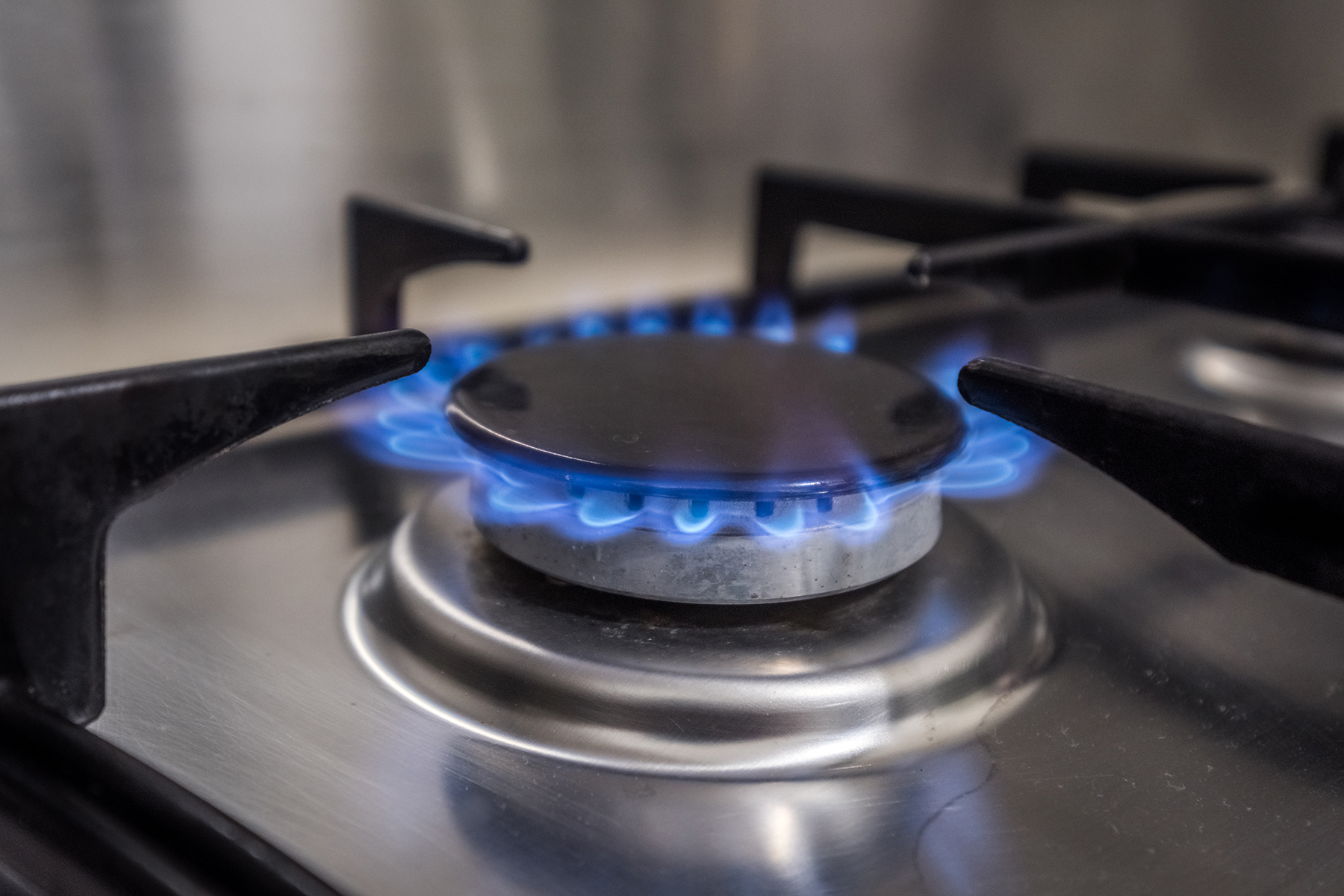
All residential and commercial premises with a piped gas supply need an annual safety inspection by a registered engineer. The engineer will produce a Certificate of Fitness to SP PowerGrid. If you have any gas equipment installed, use a licensed engineer.
Who are the major gas suppliers?
Gas in Singapore is supplied to consumers by a number of private retailers. Eleven companies supply piped gas in Singapore, some of whom also provide electricity. These include:
- City Energy
- Gas Supply
- Keppel Gas
- Seraya
Two of the biggest suppliers of LPG canisters in Singapore are SingGas and Union Gas.
How do you connect and disconnect gas in your home?
You set up your SP utilities account before installing gas in your home. You should then contact City Energy with your address and SP account details. This company deals with gas pipe installation, supply, and termination. To do this, you must provide your SP account details and address.
You will pay a connection charge of between SG$80–110 (excluding GST). The disconnection fee is SG$60 for residential customers.
Can you change gas suppliers?
You can change gas suppliers at any time in Singapore. However, check your account details in case you have signed up for a minimum period and have to pay an exit fee for early withdrawal. To change, inform your existing supplier and set up an account with your new provider. This company will bill you through your SP utilities account.
Gas costs and tariffs
Gas prices are regulated by the EMA and are reviewed quarterly. The regulated tariff from 1 April 2023 is SG$0.234 per kWh. Companies supplying gas can then offer their own price plans, which might be set for a fixed period or have a minimum usage.
Average monthly gas bills range from SG$7.90 a month for one-bed apartments to SG$51.90 for detached bungalows. LPG canisters cost around SG$35 for a 12.7kg cylinder.
How do you report gas faults and request repairs?
If you experience a gas fault, you should turn off your supply immediately and contact the 24-hour City Energy hotline on 1800 752 1800. For serious emergencies, call 995 for fire or ambulance services.
You can find gas safety tips for LPG canisters on both the SingGas and Union Gas websites.
Singapore’s water supply
Singapore has no natural freshwater resources and so provides its water through what it calls the four national taps, which are:
- Local catchments – rainfall gathered in artificial reservoirs
- Imported water – supplied through the Johor-Singapore Causeway pipeline
- NEWater – reclaimed wastewater treated in recycling plants
- Desalinated water – seawater treated at desalination plants
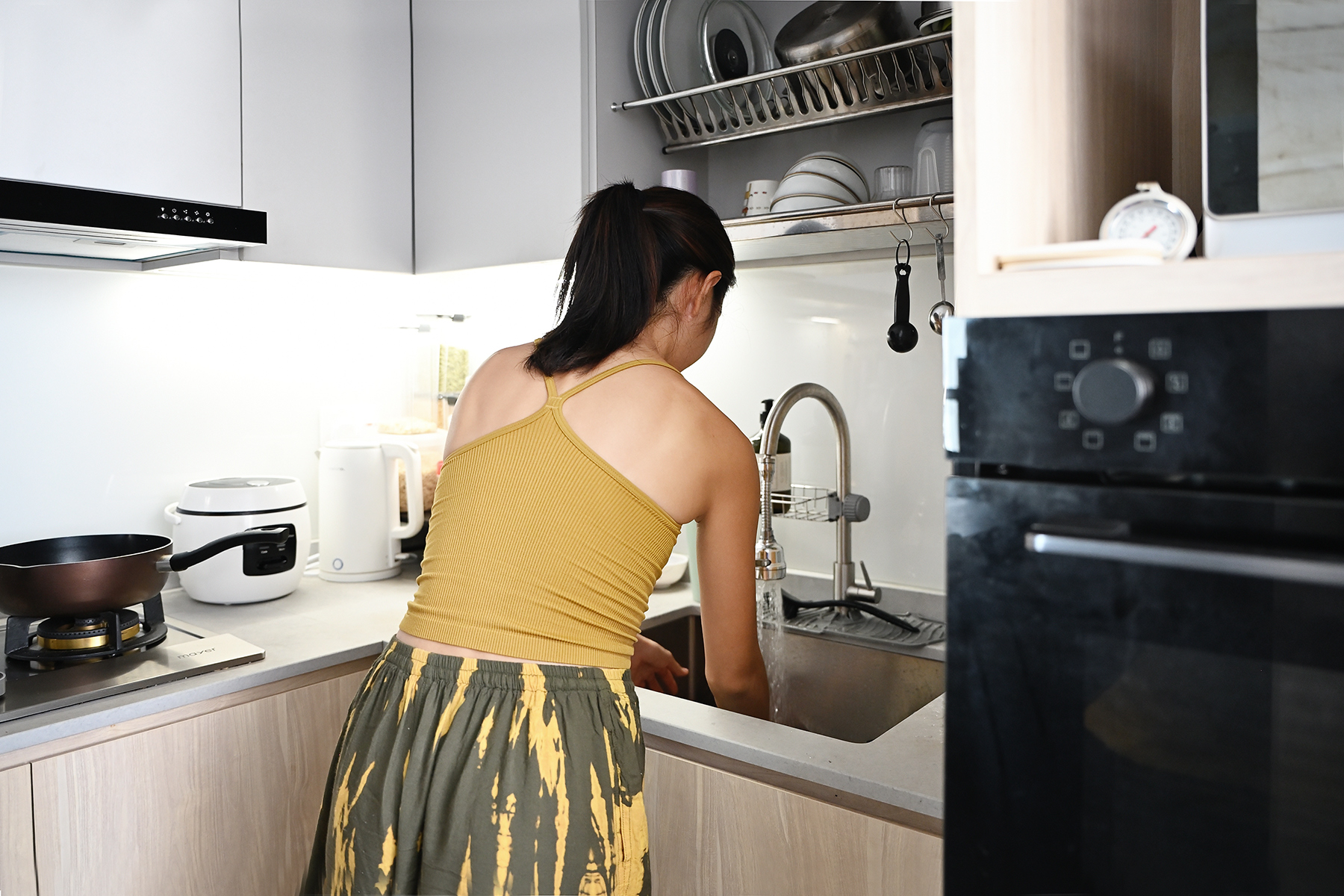
The PUB, which is a division of the MSE, regulates water quality and distribution in Singapore. According to the World Bank, 100% of Singaporeans have access to safe drinking water (2020).
Who are the major water suppliers?
The PUB supplies tap water across Singapore. In addition to this, several private companies provide filtered bottled water.
How to use water sustainably in Singapore
Singapore’s water sustainability approach is embedded in its four taps system, which uses recycled water, desalinated water, and rainwater to transition from the country’s dependence on imported water from Malaysia.
In addition, the MSE encourages households and businesses in Singapore to use water-efficient equipment, for example, low-flush toilets and water-efficient taps, shower heads, and kitchen appliances. The government aims to reduce national water use from 141 liters per day per person to 130 by 2030.
How do you connect and disconnect water in your home?
Once you have set up your SP utilities account, you should contact the PUB to connect or install your water supply. You will need to provide your SP account number and personal details.
Can you change water suppliers?
You cannot change water supplier in Singapore, as the PUB distributes water nationally. However, if you move home, you will need to close your SP utilities account and set up a new one linked to your new address.
Water costs and tariffs in Singapore
The current water tariff is SG$1.29 per cubic meter (CuM) if you use less than 40 cubic meters a month and SG$1.63 per CuM if you use more. Average water consumption ranges from 8 CuM for one-bed apartments to 50.9 CuM for detached bungalows.
The Singaporean government provides the same support funding for water as it does for electricity and gas costs through its utilities support package.
How do you report water leaks or faults and request repairs?
You should inform the PUB immediately if you experience problems such as water leaks, interruption to supply, poor water quality, or pressure issues. You can call their 24-hour hotline on 1800 225 5782. In a serious emergency, call 995 to reach the fire service or ambulance. If the issue is not urgent, you can fill out an online form and follow the necessary steps for a range of water issues.
You can search for a licensed plumber on the PUB website if you need any work carried out.
How do I make a complaint about a utility company in Singapore?
If you wish to complain about a gas or electricity company in Singapore, your first step should be to try and resolve it through their complaints team or department.
If this is unsuccessful, the next step is to contact the Consumers Association of Singapore (CASE). This association offers advice, mediation, and assistance with taking the matter to court. However, there is usually a fee for services.
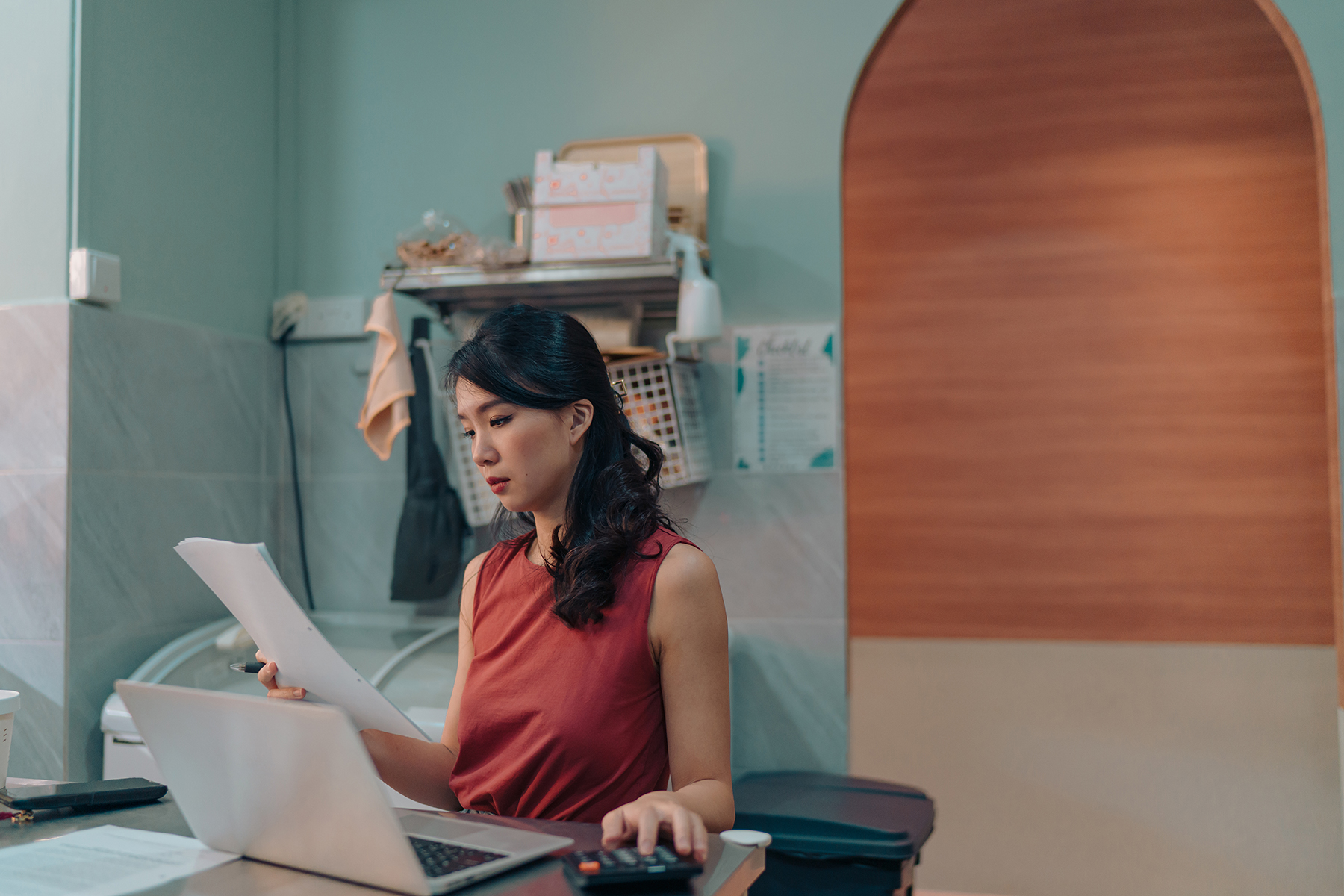
Meanwhile, you can complain about water provision services directly to the PUB, either online or by phone. The PUB also has a Whistleblowing Channel where you can report fraudulent, unethical, or corrupt practices without fear of retaliation. This channel is for employees, contractors, and stakeholders as well as customers.
You can also contact the MSE, the government ministry responsible for the PUB, if you have any unresolved issues. If you are not satisfied with the outcome your water complaint, you can pursue legal action through the courts. However, this can be costly and time-consuming, as you will have to pay your own legal fees.
Other avenues of complaint resolution with Singapore utility providers are Small Claims Tribunals (for low-value disputes) and the Singapore Tourism Board (to report inappropriate retailer behavior).
Useful resources
- City Energy – company that deals with gas installation and connection in Singapore
- Energy Market Authority (EMA) – national electricity and gas regulatory body
- Green Plan 2030 – government energy sustainability commitment for 2030
- National Environment Agency – government body responsible for energy efficiency in Singapore
- Open Electricity Market (OEM) – private electricity retailer market where you can choose providers and compare tariffs
- Public Utilities Board (PUB) – government agency responsible for water supply in Singapore
- SP Group – state-owned distributor of electricity and gas in Singapore


